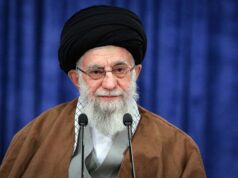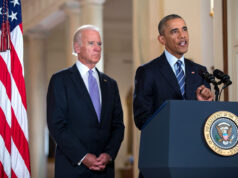One day after 1,000 Saudi-led troops arrived in Bahrain, Bahraini King Hamad bin Isa al Khalifa imposed a three-month state of emergency Tuesday and gave the country’s military chief the authority “to take necessary steps to restore national security” against a pro-democracy uprising that has threatened the ruling monarchy in recent weeks.
The dispatch of troops highlights the Saudis concerns of a possible spillover from Bahrain, where the majority Shiite population has led a month of protests against the Sunni ruling family. Of more concern to the U.S., however, are fears that Iran may take advantage of its neighbor’s situation to expand its influence on the Arab side of the Gulf.

Bahraini anti-government protesters in Manama, Bahrain, on March 14, 2011. |
|
Bahrain, oil-rich and home to the United States Navy’s Fifth Fleet, is vital to American strategic interests in the Middle East and winning the wars in Iraq and Afghanistan. If its government falls, “there is no question – no ifs, ands or buts – Bahrain would become an Iranian satellite, and the Fifth Fleet would be sent packing,” predicts Michael Rubin, a former Bahrain resident and Middle East expert at the American Enterprise Institute.
History is on the Iranian regime’s side. Bahrain was a Persian province through the 16th century and, in 1958, Tehran declared that Bahrain was Iran’s 14th province, apportioning it two seats in the national parliament. When the British left Bahrain, however, its people opted for independence, which Tehran recognized in 1970. Nevertheless, Iranian politicians continue to periodically claim Bahrain as part of its country.
With Bahrainis protesting again today, there’s no telling what will happen at this point. One thing, however, is for sure: the stakes are high for the U.S. in Bahrain. Indeed, there are no cookie-cutter templates the U.S. can use when helping to manage political transitions in the Middle East as each state presents its own unique challenges.





